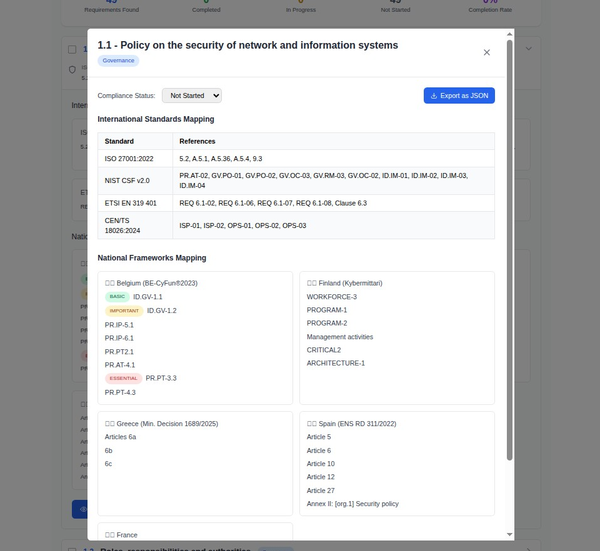Understanding the General Data Protection Regulation (GDPR): Europe's Framework for Data Privacy

The General Data Protection Regulation (GDPR) is a regulation in EU law that provides comprehensive privacy and data protection for individuals within the European Union (EU) and the European Economic Area (EEA). It also addresses the transfer of personal data outside these regions.
What is GDPR?
The GDPR is a regulation that applies to all member states of the EU and EEA, aiming to harmonize data privacy laws across Europe. It came into effect on May 25, 2018, and has since been a cornerstone in the field of data protection.
Key Provisions of GDPR
The GDPR is based on several key principles that organizations must adhere to when processing personal data. These principles include:
- Lawfulness, fairness, and transparency: Personal data must be processed lawfully, fairly, and in a transparent manner in relation to the data subject.
- Purpose limitation: Personal data must be collected for specified, explicit, and legitimate purposes and not further processed in a manner that is incompatible with those purposes.
- Data minimization: Personal data must be adequate, relevant, and limited to what is necessary in relation to the purposes for which they are processed.
- Accuracy: Personal data must be accurate and, where necessary, kept up to date.
- Storage limitation: Personal data must be kept in a form which permits identification of data subjects for no longer than is necessary for the purposes for which the personal data are processed.
- Integrity and confidentiality: Personal data must be processed in a manner that ensures appropriate security of the personal data, including protection against unauthorized or unlawful processing and against accidental loss, destruction, or damage.
- Accountability: The controller shall be responsible for, and be able to demonstrate compliance with, these principles.
Rights of the Data Subject
The GDPR also introduces several rights for data subjects, including the right to access their data, the right to rectification of inaccurate data, the right to erasure (also known as the 'right to be forgotten'), the right to restrict processing, the right to data portability, and the right to object to processing.
Compliance with GDPR
Compliance with the GDPR is mandatory for all organizations processing the personal data of individuals within the EU and EEA, regardless of the organization's location. Non-compliance can lead to hefty fines, up to €20 million or 4% of the company's global annual turnover of the previous financial year, whichever is higher.
Conclusion
The GDPR represents a significant step forward in data protection, providing individuals with greater control over their personal data and simplifying the regulatory environment for international businesses. Understanding and complying with the GDPR is crucial for any organization processing personal data of individuals within the EU and EEA.
Please note that this article is intended to provide a general overview of the GDPR and does not constitute legal advice. For detailed guidance on GDPR compliance, please consult with a legal expert in EU data protection law.





